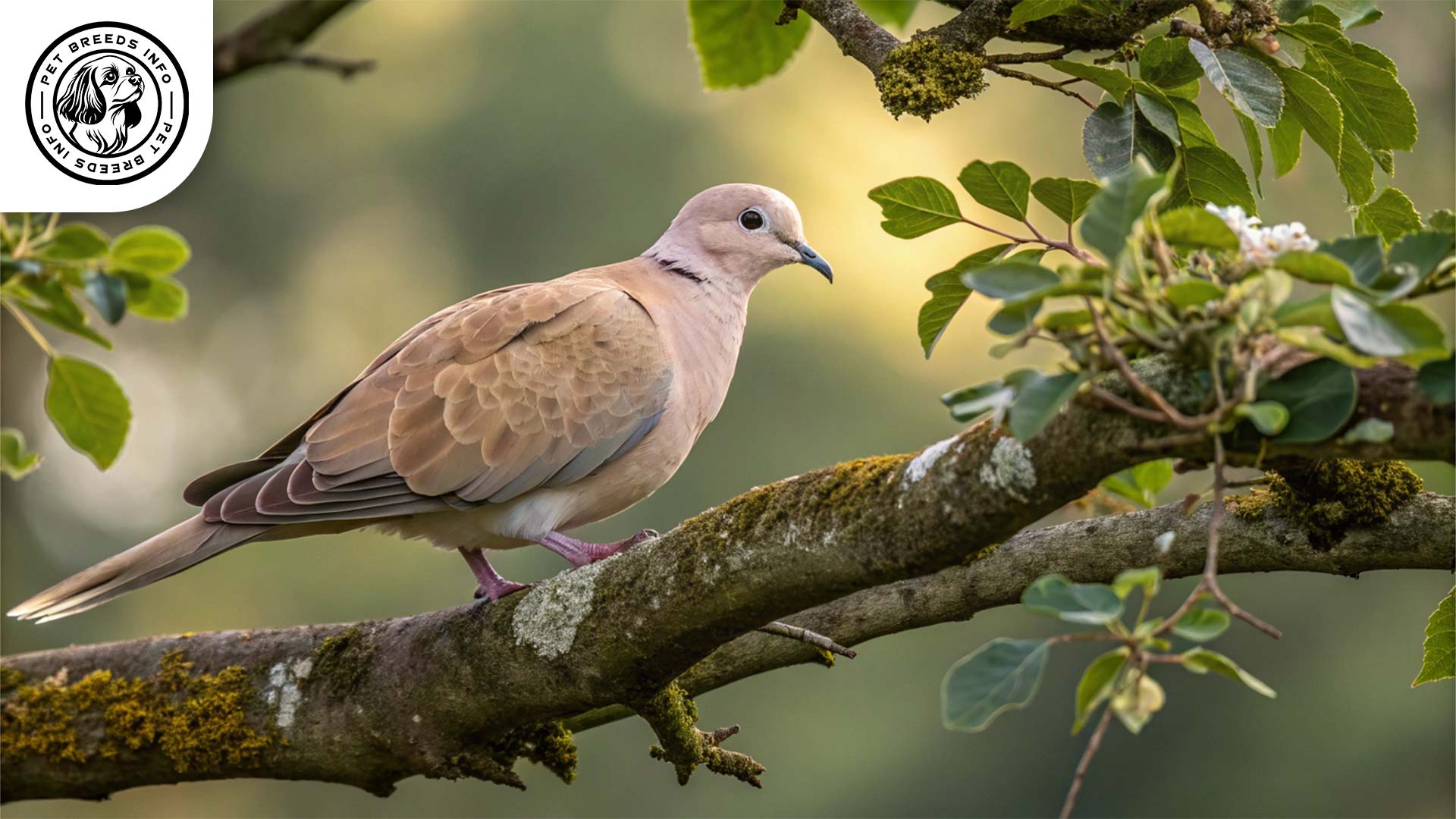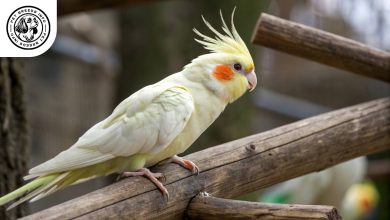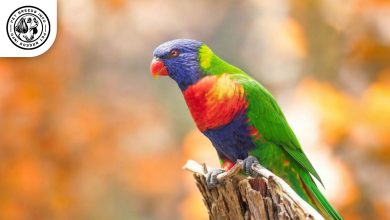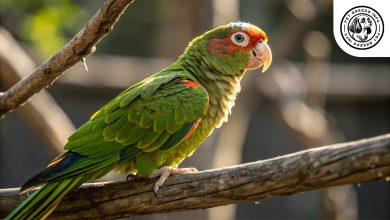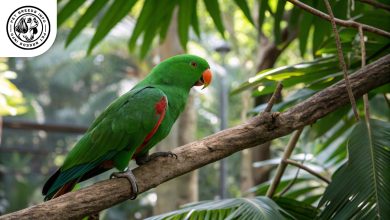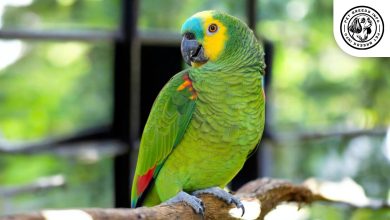Barbary Dove Breed: Personality, Lifespan, Food & Care
General Introduction of the Breed
The Barbary Dove, also known as the Laughing Dove (Streptopelia risoria), is a domesticated dove species known for its gentle nature and distinctive cooing sounds. It is popular as a pet due to its adaptability and affectionate behavior.
This species is believed to have originated from North Africa and has been bred in captivity for centuries. The Barbary Dove has since spread worldwide, often found in homes as a companion bird.
Table of Contents
| Common Name | Barbary Dove |
| Scientific Name | Streptopelia risoria |
| Origin | North Africa |
| Size | Medium |
| Lifespan | 10–15 years |
| Colors | Cream, white, fawn, pinkish |
| Talking Ability | None |
| Noise Level | Low |
| Social Behavior | Very social, gentle |
Physical Characteristics
The Barbary Dove is a medium-sized bird with a slender body and a graceful appearance. It typically measures around 25-30 cm in length and has a wingspan of approximately 45 cm.
The plumage of these doves varies in color, including shades of cream, white, fawn, and even light brown. Some birds exhibit soft pinkish undertones on their breast and neck. Their feathers are smooth and well-groomed.
The eyes are round and dark, often appearing black or deep brown. They have a small, curved beak that is usually light gray or pinkish.
Their tails are long and pointed, often with a slightly darker shade at the tips.
A distinctive feature of this dove is the black half-ring around its neck, adding to its elegant appearance.
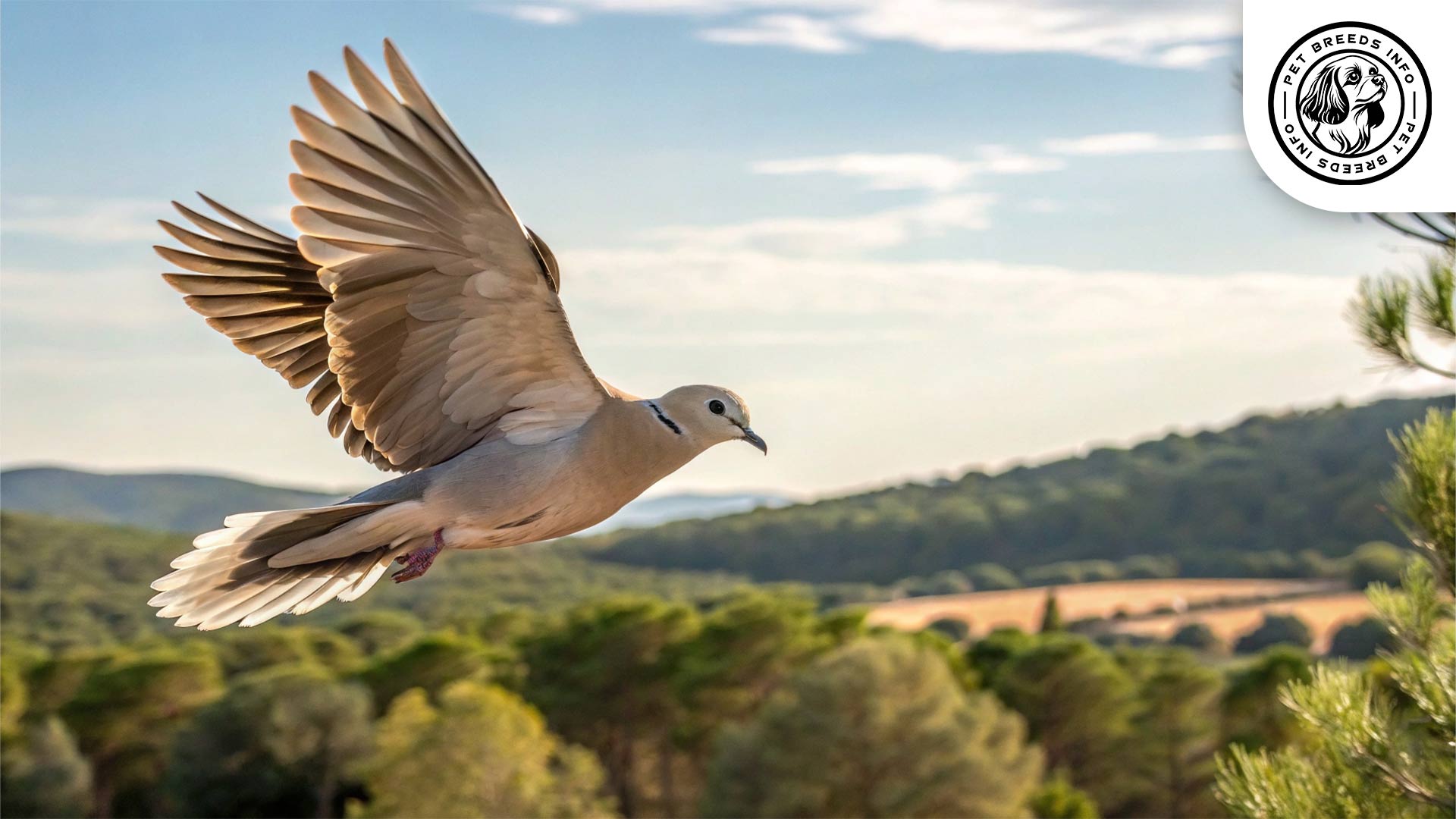
Personality and Temperament
The Barbary Dove is known for its calm and affectionate nature. It is highly social and enjoys human companionship, often bonding strongly with its owners.
These doves are intelligent and can recognize their caregivers, responding to familiar voices and interactions.
They have a moderate energy level, enjoying gentle flight and perching in their habitat while also engaging in soft vocalizations.
Barbary Doves are friendly and non-aggressive, making them suitable for households with children and other pets. They do well in pairs or small groups but can also thrive when raised alone if given enough attention.
Care and Maintenance Requirements
Barbary Doves do well in spacious cages or aviaries where they can stretch their wings and move freely. They require perches, nesting areas, and a clean, dry environment.
These doves should be kept in areas with mild temperatures, as they can be sensitive to extreme cold.
Grooming needs are minimal, but regular cage cleaning is essential to maintain their health. They also enjoy gentle misting, which helps keep their feathers clean.
Providing fresh water for bathing is beneficial, as they enjoy shallow baths to maintain their plumage.
Diet and Nutrition
Barbary Doves thrive on a diet primarily composed of specially formulated dove or pigeon seed mixes. These often include millet, safflower seeds, and cracked corn.
Fresh vegetables and occasional fruits like apples and berries can be offered in moderation.
Avoid feeding them avocado, chocolate, caffeine, and salty foods, as these can be toxic to doves.
Read More: Blue and Gold Macaw Bird
Ensure they have access to a cuttlebone or mineral block to support healthy beak development and calcium intake.
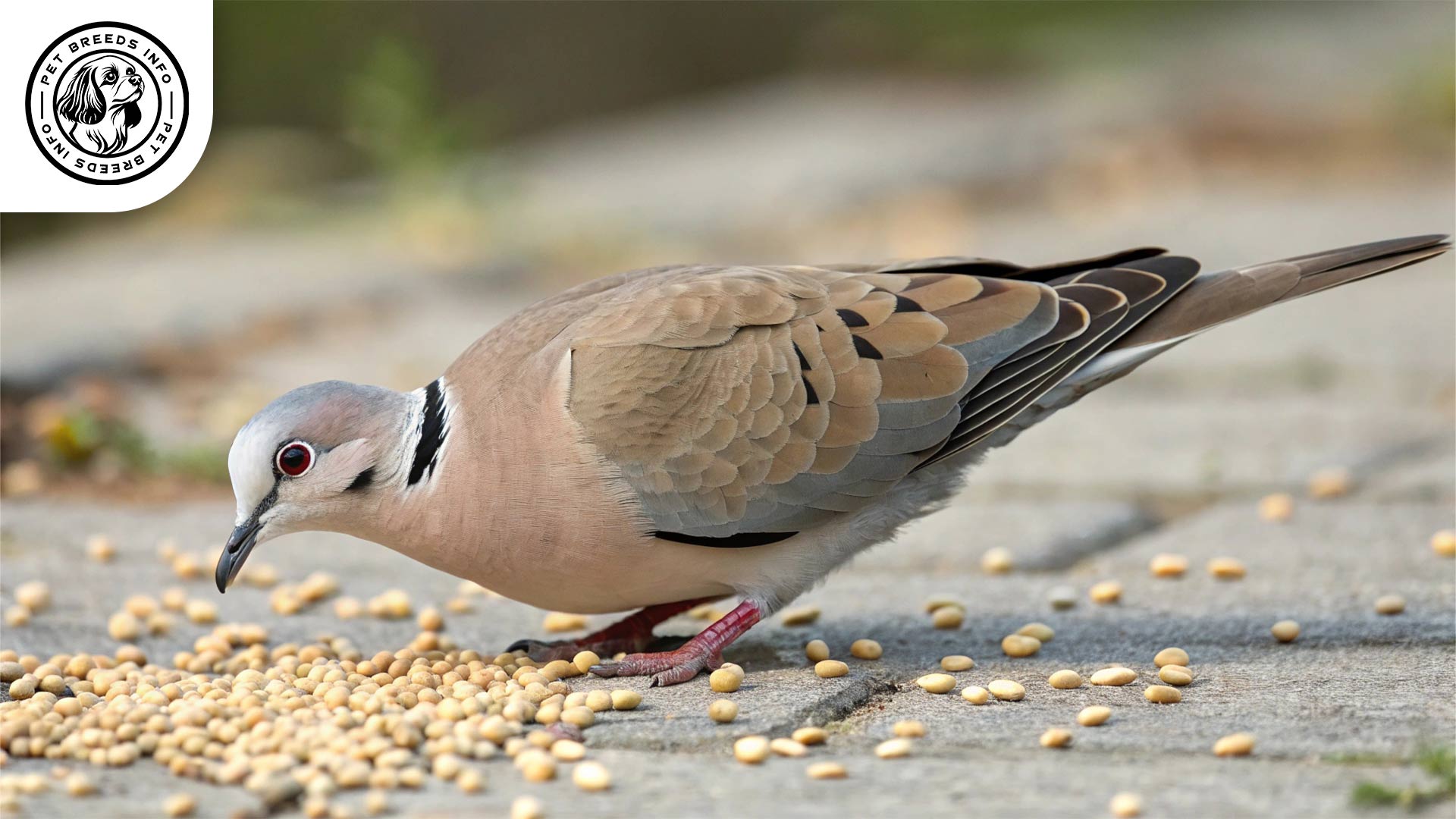
Health and Common Medical Issues
Barbary Doves are generally hardy birds but can be prone to respiratory infections, especially if kept in drafty or damp environments.
They may develop feather mites or lice, which require veterinary treatment and appropriate hygiene measures.
Their average lifespan is between 10 to 15 years, but with proper care, some have been known to live even longer.
Regular veterinary checkups are recommended to monitor their health and ensure they remain in good condition.
Training and Behavior Management
These doves are relatively easy to train, especially when handled gently from a young age. They can recognize their names and respond to simple commands.
Positive reinforcement training, such as offering treats and soothing words, works best for building trust.
Early socialization helps them become comfortable with human interaction, making them more docile and friendly.
Consistency in handling and patience is key to ensuring they remain tame and affectionate.
Read More: Hyacinth Macaw Bird
Interaction with Other Animals and Humans
Barbary Doves get along well with their owners and enjoy perching on hands or shoulders. They form deep bonds with humans and can be very affectionate.
They generally coexist peacefully with other birds, especially other doves and small, non-aggressive avian species.
These doves are well-suited for families, individuals, or elderly owners seeking a low-maintenance pet.
They are not highly independent and do best when given regular interaction and social engagement.
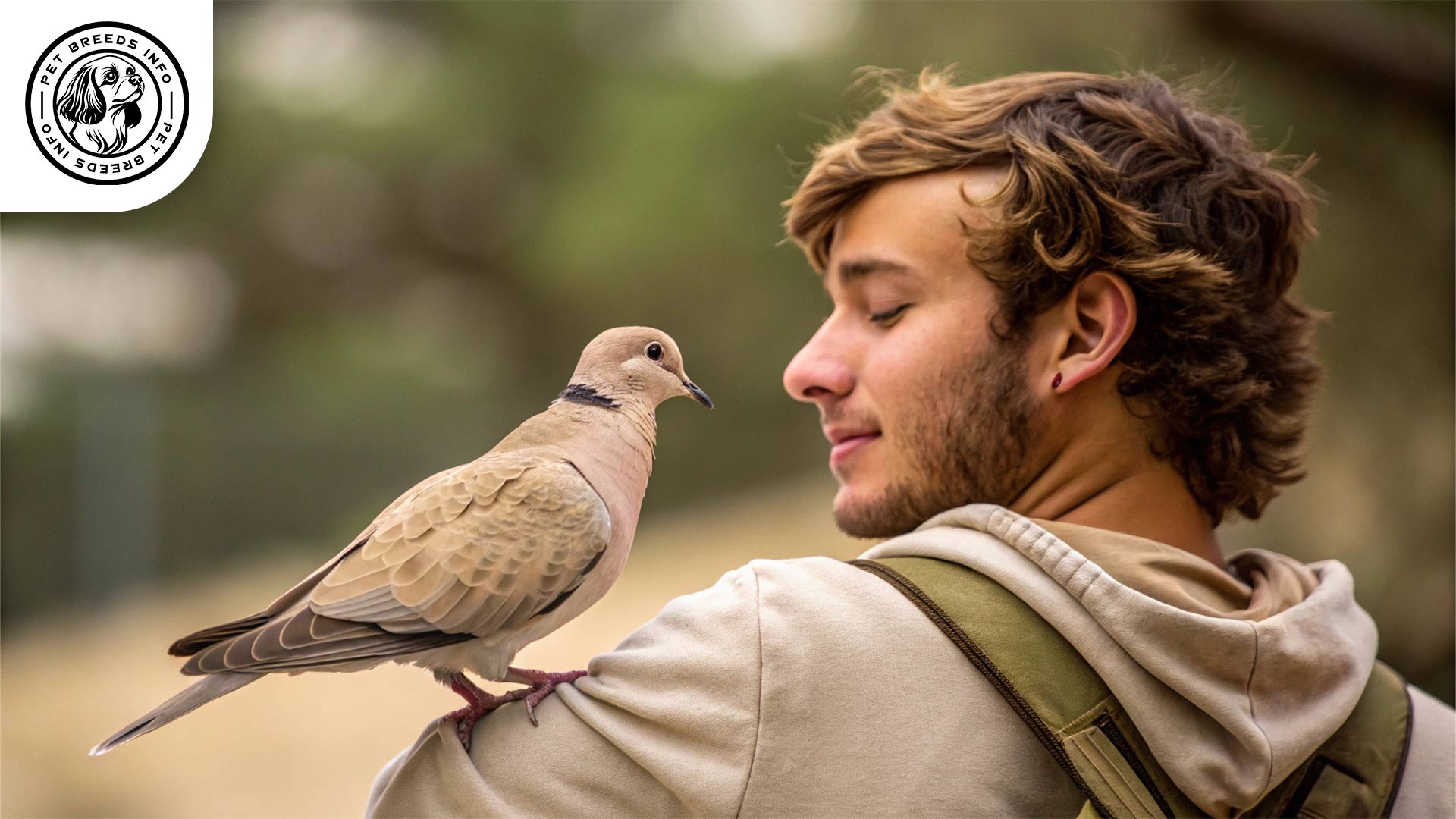
Price and Availability
The cost of a Barbary Dove ranges from $20 to $50, depending on the breeder, age, and coloration.
They can be acquired from reputable bird breeders, pet stores, or avian adoption centers. Always ensure you are purchasing from a responsible breeder who prioritizes the bird’s health and well-being.
Adoption is also a great option, as many doves are in need of new homes and can be obtained through rescue organizations.
Conclusion and Final Thoughts
The Barbary Dove is a gentle and affectionate pet, perfect for individuals and families looking for a low-maintenance and sociable companion bird.
Its peaceful temperament, ease of care, and lovely cooing sounds make it a wonderful addition to any household.
Potential owners should ensure they can provide a suitable environment, consistent interaction, and a balanced diet to keep their dove healthy and happy.
Read More: Gang-gang Cockatoo Bird
If you are looking for a friendly, low-maintenance pet bird, the Barbary Dove could be an excellent choice for you.
FAQ
Are Barbary Doves good pets for families?
Yes, their calm and affectionate nature makes them ideal for families, kids, and even elderly owners.
Do Barbary Doves talk or mimic like parrots?
No, they do not talk, but they produce pleasant, soft cooing sounds.
What do they eat?
A mix of millet, safflower, cracked corn, and fresh vegetables or fruits in moderation.
Can I keep a Barbary Dove alone?
Yes, but they require regular human interaction and attention to stay happy.
